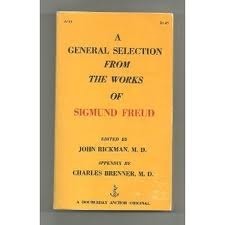What do you think?
Rate this book


Features
Navigate from Table of Contents or search for words or phrases Make bookmarks, notes, highlights Searchable and interlinked. Access the e-book anytime, anywhere - at home, on the train, in the subway. Automatic synchronization between the handheld and the desktop PC. You could read half of the book on the handheld, then finish reading on the desktop.Table of Contents
Dream Psychology Translated by M. D. Eder
The Interpretation of Dreams (3rd edition) Translated by A. A. Brill
Three Contributions to the Theory of Sex Translated by A. A. Brill
A Young Girl's Diary Translated by Eden and Cedar Paul
Appendix:
Sigmund Freud Biography
Setup and Navigation
About
Hardcover
First published January 1, 1952
"Now hypnosis, as a fanciful, and so to speak, mystical aid, I soon came to dislike; and when I discovered that, in spite of all my efforts, I could not hypnotize by any means all of my patients, I resolved to give up hypnotism and to make the cathartic method independent of it. Since I could not alter the psychic state of most of my patients at my wish, I directed my efforts to working with them in their normal state.” Pg. 6, Origin and Development of Psycho-Analysis.
Those of our fellow-men who are dissatisfied with this state of things and who desire something more for their momentary peace of mind may look for it where they can find it. We shall not blame them for doing so; but we cannot help them and cannot change our own way of thinking on their account.” Pg. 884.